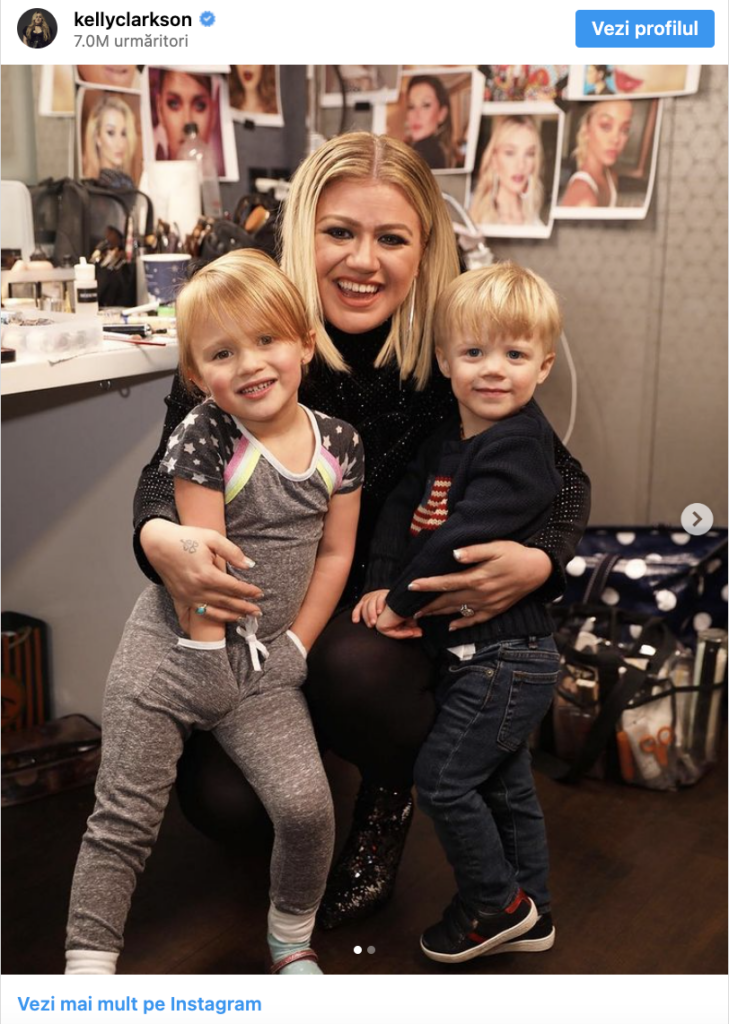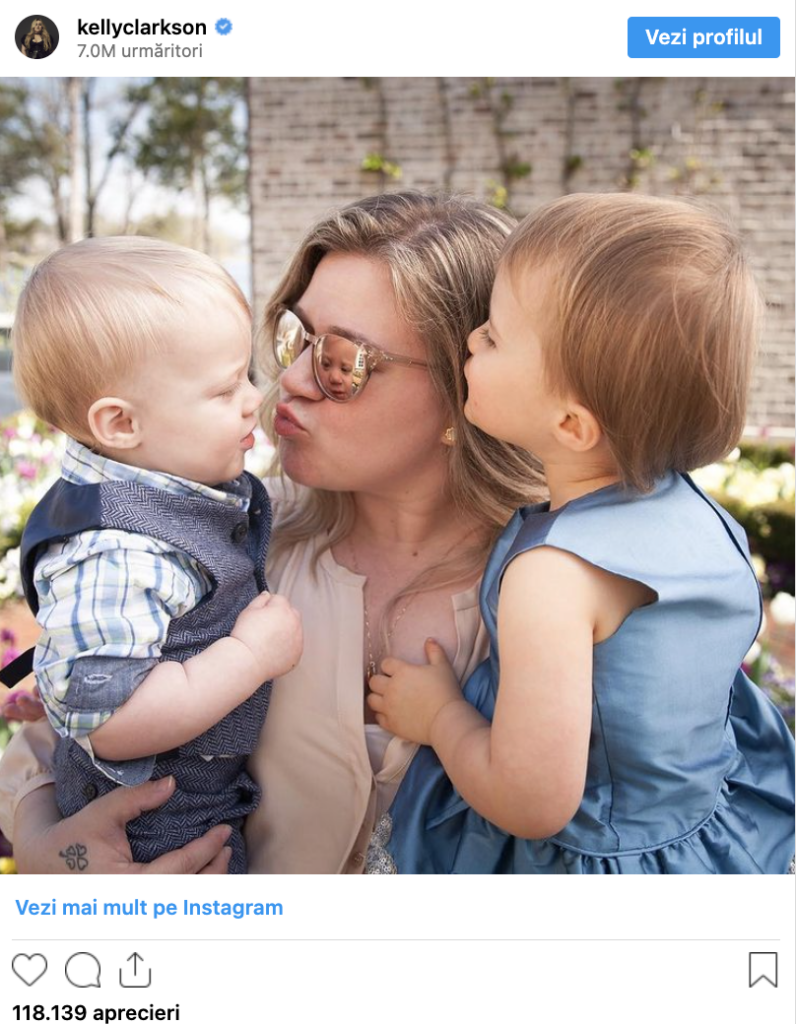n a candid radio interview, Kelly Clarkson, the delighted mother of River Rose, 8, and Remy, 6, unashamedly aired her views on child discipline, including spanking. As parenting styles diversify and grow, this topic has sparked significant controversy recently.
Clarkson, a well-known personality in the entertainment world who was just honored with a star on the famed Hollywood Walk of Fame, has not been shy about sharing her decision to include slapping in her parenting toolset.
She consistently supported her opinion, citing her background and cultural influences that influenced her viewpoint.

Clarkson’s declaration that she is “not above spanking” her children has prompted both support and suspicion in a society where child-rearing beliefs are as diverse as they are passionate.
“I don’t mean striking her,” she added, adding that her purpose is not to cause injury but rather to use physical punishment in a controlled manner. “I just mean a little spanking,” she explained further.
Spanking, on the other hand, is not without its detractors. The American Academy of Pediatrics, a recognized child health institution, has declared unambiguously that spanking is ineffective and potentially harmful to a kid’s well-being.
While the organization’s position is based on substantial study and professional consensus, parents still support the traditional approach to discipline.
Kelly Clarkson’s support for spanking stems from her background in Texas, a culturally varied and diverse state. “I’m from the South, y’all, so we get spankings,” she remarked, emphasizing the regional and cultural influences on her beliefs.
She frankly discussed her childhood, “My parents spanked me, I did fine in life, and I feel fine about it.” According to her, this strategy worked as a tool for instilling values and character, and she believes it contributed to her well-rounded personality.

Nonetheless, Clarkson understands the difficulties of disciplining her children in public when scrutinizing and judging her parenting approach. “That’s a tricky thing to do when you’re out in public because then people are like, They think that’s wrong,” she explained.
Despite the possibility of criticism, she remains steadfast in her opinion that spanking is a legitimate discipline method. “I have faith in spanking,” she remarked, “so you may see me spanking my child at the zoo.””
Clarkson’s method includes an element of forewarning to create a balance between discipline and communication. “I’m like, ‘Hi, I’m going to spank you on your bottom if you don’t stop right now. This is ridiculous,’” she stated, highlighting the importance of open communication in the process.
She claims that this approach has positively impacted the frequency of unwanted behavior.
The controversy over Kelly Clarkson’s approach to child discipline reflects more considerable discussions about parenting variation and human autonomy. While some may agree with her, others may push for alternatives emphasizing non-physical strategies.
In a community that values open communication and sharing experiences, it is critical to respect parents’ decisions while also considering their children’s well-being and growth.
In essence, Kelly Clarkson’s open disclosure of her opinion on spanking has spawned a multifaceted debate that reflects the intricate tapestry of modern parenting philosophies.
As society evolves, so do our opinions on effective parenting, and there is a place in this active conversation for a variety of perspectives to coexist and contribute to the collective wisdom of parenting.